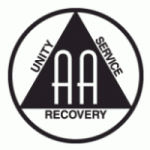
Charity Digital Skills Report, the EC take on things.
The newly launched charity digital skills report makes an interesting read, and many of the findings resonate with the day-to-day challenges we help our clients solve. Here, we look at how to use CRM to overcome some of the issues highlighted in this report around fundraising, contact management and data analytics.
#1. 67% of charities feel they don’t have the right resources in place to go digital
The best solutions should be those that can managed in-house by employees with some digital enthusiasm, but without the need for coding or technical skills. It’s really about choosing the right solution that can be implemented by experts and then self-managed. Our approach is to train and capacity-build internal resource in business analysis, Salesforce admin and change management. Very few of our clients have had prior Salesforce knowledge, and after our support approximately 90% can self-manage their Salesforce implementation.
#2. Charities are hungry for their boards and leadership teams to develop digital skills in order to seize opportunities in digital fundraising, develop competitive advantage, and stay relevant to their audience.
It is well known that executive sponsorship is essential for managing change and supporting digital adoption within an organisation to be successful. Ensuring the Directors are part of digital demo’s and actively using a CRM system for their own analytics is key. They should be aware of the possibilities and clear on how digital tools can help them achieve or measure their organisational strategy. Our previous webinar on CRM for Senior Management and Trustees gives some interesting insights into gaining buy-in from your SMT.
#3. 75% of charities think growing their digital skills would help them increase fundraising, whilst 71% see opportunities to grow its network and 69% to deliver its strategy more effectively.
We actively see charities adopt a CRM and integrated apps, to help them achieve all the above, whether they.. actively use online payment forms integrated with a CRM to make donor giving easier to process and manage; OR they introduce online communities to help volunteers network and support each other achieve outcomes for beneficiaries; OR they manage all of their data within a CRM to report on Management KPI’s.
Our clients adopt a ‘CRM’ as they want to improve client relationship management- it’s no longer a spreadsheet or a database, but about building a strategy and digital solutions for better engaging and managing their stakeholders, and utilising these assets. They want to engage individual donors, and understand how to also engage them in events, services or volunteering. It’s about understanding who your stakeholders, are and being intuitive in your communications. And, importantly – measuring the level of engagement and outcomes achieved by your digital strategy.
#4. If charities want to generate more income they will need to raise their game in digital fundraising and digital business development skills, with the majority rating their skills in these areas as fair to low.
A digital strategy and skill-set spans website, social media, e-newsletters, CRM and analytics as well as other communications platforms. These digital tools need to be integrated and developed in synchronisation, to develop a joined up solution which achieves efficient results. Take the example of online payment forms for donations. This syncs customer and purchase data straight into the CRM to either align the donation with an existing contact, or create a new contact. This keeps information real-time and all in one place. The traditional silos between IT, programme management and comms departments are breaking down, and a digital transformation team needs to be created in a charity that brings interested folk to work together. We like to talk about ‘programme management’, as many of the people we work with are fundraising managers, volunteer managers or project managers, who also become the Salesforce Administrator. They can learn to manage the CRM themselves – it doesn’t require the traditional tech support!
To find out more about Salesforce solutions, email heather@economicchange.co.uk
To read the whole report click here.


